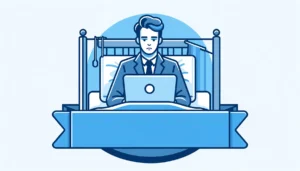Active employees and the bottom line
- 4 Min Read
UK employees expect businesses to step up when it comes to physical wellbeing, according to David Capper, Chief Executive Officer of Westfield Health.
- Author: David Capper
- Date published: Dec 6, 2019
- Categories

This year we’ve released three Wellbeing Index reports. These 2000-person surveys act as a barometer of the nation’s wellbeing at home and at work.
They always throw up something interesting, often unexpected. Knowing how much sedentary lifestyles affect our health, we chose to focus on physical wellbeing this time.
We were expecting to see that we aren’t active enough as a nation – though maybe we thought a few more than 16% of us would be meeting the guidelines. What we weren’t expecting was the reason why.
When the survey went out, our working theory was that people didn’t know how much exercise they were supposed to get; perhaps they weren’t aware of the NHS guidelines that recommend 150 minutes per week for adults or how bad a sedentary lifestyle can be. But that’s not what we found.
This Wellbeing Index revealed that education is not the issue: the majority of people (54%) know the NHS guidelines and 60% were worried about the risks of a sedentary lifestyle.
But despite understanding the guidelines and fearing the risks, only 12% of the people we surveyed said they were actively trying to reduce the amount of time spent sitting.
So, why aren’t we doing more? Our partners over at the Advanced Wellbeing Research Centre (AWRC) have taught us a lot about the importance of understanding motivation and barriers — looking for the ‘why’ behind the ‘what’.
When we asked about the biggest barrier to being more active, almost a third (32%) said lack of time. This was closely followed by low energy (31%) and low mood (25%).
What really struck me reading about those barriers is how much of a vicious circle it is: low energy and low mood can both be boosted by physical activity. That means if we can solve the time issue, we’ll eliminate the three biggest barriers to exercising more. Just think what an impact that could have on our health as a nation.
The need for employers to step up came through so strongly in the survey. Almost seven in ten (67%) people told us they expect employers to support their physical wellbeing.
In reality, less than half (47%) have access to basic facilities — only one in four (26%) have access to changing rooms, 20% have somewhere to park a bike, 10% have an on-site gym. There’s a significant gap between what employees now expect and what they’re getting.
What made for even more frustrating reading is that HR professionals see the value of supporting physical wellbeing, they’re just not getting buy-in from senior leaders.
Almost three quarters (74%) of HR professionals agree that physical activity reduces absenteeism, but three in five experience money barriers.
That reflects badly on senior decision makers. Yes, budgets are tight. Yes, that means making the case for proactive spending is hard, but it’s the right thing to do — for the business as well as your people.
We all recognise that people are a business’s biggest asset. Knowing how much the office and work day contribute to sedentary time or feeling like we’re too busy to exercise, we have a moral responsibility to do more.
Rather than just looking at this year’s P&L, I call on all business leaders to calculate how much absence truly costs their business and then look at whether they can afford not to prioritise their team’s physical wellbeing.
There’s also a need for the government to get involved here. For other initiatives that support employee health, such as cycle to work schemes, companies can offset these against corporation tax. Why not do the same with other investments in physical wellbeing?
With 1 in 6 deaths in the UK being attributable to sedentary lifestyles, this is very much a national, government-level issue. Providing tax incentives will minimise financial barriers to supporting physical wellbeing, enabling more and more small businesses to provide the right support for their teams and decreasing the impact on our health as a nation.









